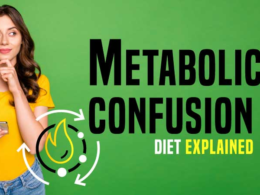Ageism, the bias or oppression of people in light of their age, is an unavoidable issue across different areas of society. In medical services, ageism appears in more ways than one, frequently coming about with less than ideal consideration for more established grown-ups. Regardless of clinical progressions and expanded mindfulness about maturing populaces, predispositions against more seasoned people persevere. This article dives into the causes, results, and possible answers for ageism in medical services, giving an exhaustive investigation of a complicated and basic issue.
What is ageism?
Ageism is characterized as generalizing, biasing, or oppressing people or gatherings because of their age. Although ageism can influence individuals of all ages, it is generally regularly coordinated toward more established grown-ups. Frequently founded on generalizations, expect more seasoned people to be delicate, intellectually weakened, or unequipped to master new abilities. In medical care, these generalizations can prompt presumptions that the older are less important, have decreased personal satisfaction, or can’t profit from specific therapies.
The Developing Mature Populace
Universally, populations are maturing at phenomenal rates. As per the World Wellbeing Association (WHO), the number of individuals who mature 60 years and are more seasoned will be twofold by 2050, ascending from 1 billion to 2.1 billion. This segment shift requires medical care frameworks to adjust to the necessities of more seasoned grown-ups. Be that as it may, numerous medical services frameworks are badly ready to fulfill these needs, and ageist perspectives further worsen the difficulties more seasoned grown-ups face in getting evenhanded consideration.
Appearances of Ageism in Medical Services

Ageism in medical care can be both unequivocal and implied, appearing in different ways, including how more established patients are dealt with, analyzed, and made due. The following are a few key models:
1. Under-treatment and over-management
One of the most distressing impacts of ageism is the underaction of more established full-grown-ups. Doctors might accept that specific clinical intercessions, like a medical procedure or forceful malignant growth therapies, are improper for old patients, in any event, when they could profit from them. For example, more seasoned grown-ups with the disease are less inclined to get chemotherapy than more youthful patients, in any event, when their general well-being is great. This predisposition can lead to the refusal of life-saving medicines if they are viewed as old enough.
On the other hand, ageism can likewise prompt over-treatment, where medical care suppliers might expect that more established grown-ups are delicate and ought to be dealt with forcefully, in any event, when moderate therapies would get the job done. For instance, more established grown-ups may get pointless drugs, expanding their gamble of unfriendly aftereffects and intricacies.
2. Misdiagnosis and demonstrative eclipsing
Ageist suppositions can prompt misdiagnosis or misanalysis. Medical services suppliers might credit side effects to “advanced age” as opposed to exploring expected fundamental causes. This is especially normal with psychological wellness issues, for example, discouragement or nervousness, which are frequently underdiagnosed in more seasoned grown-ups. A specialist could excuse indications of despondency as “ordinary maturing” instead of remembering it as a treatable condition.
Essentially, demonstrative eclipsing can happen when medical services suppliers center around a patient’s age-related conditions while ignoring other expected reasons for their side effects. For instance, mental deterioration in a more established grown-up may be ascribed exclusively to dementia, while other potential donors like lack of nutrients, prescription aftereffects, or even misery are disregarded.
3. Suspicions about Personal Satisfaction
Ageist perspectives frequently incorporate ideas about a more experienced grown-up’s satisfaction. Health services suppliers might expect that an individual’s life is less important or that they are less equipped for getting a charge out of life because of their age. These worries can impact choices about treatment. For instance, some medical care suppliers might select less powerful therapy for more established grown-ups for they accept that the easy-going has a limited future or would favor solace over corrective events.
This type of paternalism strips more seasoned grown-ups of their independence, subverting their capacity to come to informed conclusions about their medical care. It can prompt circumstances where medical care suppliers, instead of patients, figure out what is “ideal” for the patient because of one-sided suppositions about maturing.
4. Correspondence, obstructions, and lack of regard
Correspondence between medical services suppliers and more seasoned patients can likewise be undermined by ageism. Medical services suppliers might address more established grown-ups in a belittling or stooping way, utilizing excessively worked-on language or expecting that the patient can’t grasp complex clinical ideas. This kind of infantilization can leave more established patients feeling disregarded and weak in their medical care.
Moreover, a few suppliers may essentially address relatives instead of the patient, further minimizing the more seasoned grown-ups and subverting their independence. Indeed, even in situations where the family association is fundamental, the patient’s voice ought to stay focal in conversations about their consideration.
5. End-of-life care and palliative help
Ageism can likewise assume a critical part in the finish of life care. More seasoned grown-ups are frequently generalized as being “prepared to pass on” essentially as a result of their age, prompting an absence of proper palliative consideration choices or the untimely withdrawal of life-supporting medicines. This predisposition not only influences the nature of end-of-life care but can likewise bring about more seasoned patients being denied a noble and empathetic demise.
The Effect of Ageism on Wellbeing Results

The impacts of ageism in medical services are sweeping and can have serious ramifications for the physical, mental, and profound prosperity of more seasoned grownups.
1. More unfortunate well-being results
Studies have shown that more established grown-ups who experience ageism in medical care have less fortunate well-being results contrasted with the people who don’t. Ageism can prompt postponed analysis, deficient treatment, and diminished admittance to preventive consideration. Subsequently, more established grown-ups may encounter quicker decreases in well-being and capability, adding to a general reduction in personal satisfaction.
2. Psychological Wellness Impacts
Ageism can likewise significantly affect the psychological wellness of more established adults. Steady openness to negative generalizations and suspicions about maturing can dissolve a single’s confidence and self-esteem. This can prompt sensations of sadness, sorrow, and tension. Besides, ageism in medical services can prevent more seasoned grown-ups from looking for clinical consideration, worsening their medical problems and further segregating them from important help.
3. Expanded medical care expenses
Right when clinical consideration providers dismiss, under-treat, or over-treat more settled adults in light of ageist tendencies, the result is a large part of the time extended clinical benefits costs. Inconsequential tests, treatments, and hospitalizations can provoke higher specialist visit costs, while the failure to treat or administer conditions effectively can achieve preventable intricacies that require more exorbitant drugs later on.
Tending to Ageism in Medical Care

Battling ageism in medical care requires a multi-layered approach including strategy changes, training, and social movements. The following are a few vital techniques for tending to ageism in the medical services framework.
1. Schooling and preparing
One of the best ways to combat ageism is through schooling. Medical care suppliers, from specialists to attendants to authoritative staff, ought to be prepared to tend to the intricacies of maturing and challenge ageist generalizations. This preparation ought to incorporate data about the special medical services needs of more established grown-ups, procedures for discussing really with old patients, and strategies for giving patient-focused care.
Clinical schools and preparation programs should likewise coordinate geriatric considerations into their educational plans to guarantee that future medical care experts are exceptional in treating more seasoned patients with the regard and nobility they merit.
2. Advancing Age-Comprehensive Approaches
Medical services organizations and policymakers need to take on and authorize age-comprehensive strategies that guarantee impartial admittance to focus on more seasoned grown-ups. This incorporates tending to foundational boundaries, for example, the accessibility of geriatric subject matter experts, guaranteeing that clinical preliminaries incorporate more seasoned grown-ups and advancing rules that deter age-based treatment choices. Medical services strategies should mirror the developing necessities of a maturing populace, focusing on assets for geriatric consideration, long-haul care, and constant sickness of the executives.
3. Patient backing and strengthening
More seasoned grown-ups and their families can likewise assume an urgent part in fighting ageism by supporting themselves in medical care settings. Patient strengthening includes guaranteeing that more established people approach the data and assets they need to come to informed conclusions about their well-being. Medical care suppliers ought to effectively energize patient support, regard their independence, and try not to make suppositions about what is best for them.
4. Public Mindfulness Missions
Raising public mindfulness about ageism and its unsafe impacts is indispensable to changing cultural perspectives toward maturing. General well-being efforts that challenge generalizations and praise the commitments of more seasoned grown-ups can assist with moving the social story around maturing. By advancing positive pictures of maturing and featuring the variety of encounters among more seasoned grown-ups, society can start to separate the obstructions that add to ageism in medical services.
The job of innovation
Innovation guarantees further developing consideration for more established grown-ups and lessening ageism in medical care. Telemedicine, for example, can make medical services more available to old patients who might have portability issues. Computerized reasoning (computer-based intelligence) can assist with customizing treatment plans and help with diagnosing conditions all the more precisely. In any case, it is fundamental that these advancements are planned comprehensively, considering the requirements.








